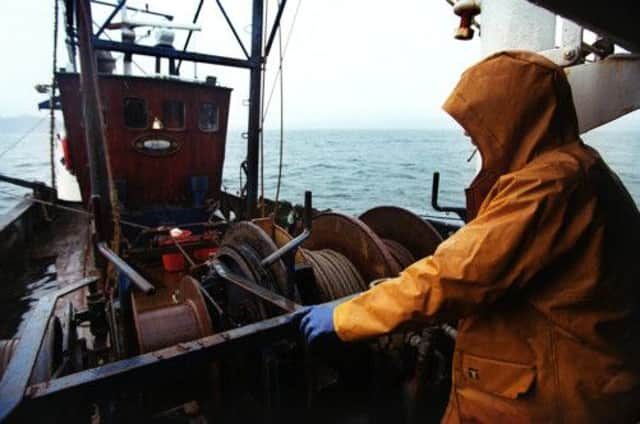European Commission approves Faroes sanctions


A total ban on the import of Faroese catches of both herring and mackerel into European ports is to be brought into force in a major blow for the Nordic nation’s fishing industry.
The sanctions, which will come into force seven days after being published in the Official European Journal, will also mean that some Faroese vessels will not be allowed to dock in European Union ports, except in cases of emergency.
Advertisement
Hide AdAdvertisement
Hide AdLast year Faroese boats took 159,000 tonnes of mackerel, one of the most important catches for Scotland’s powerful pelagic fleet, after refusing to enter into an international agreement on the division of the vital stock.
A spokesman for Maria Damanaki, the European Fisheries Commissioner, said: “The European Commission has today adopted a package of measures to address the continued unsustainable fishing of herring by the Faroe Islands. The measures include the ban of imports of herring and mackerel from the Atlanto-Scandian stocks that has been caught under the control of the Faroe Islands as well as fishery products containing or made of such fish.
“The measures also include restrictions on the use of EU ports by vessels fishing for the herring and mackerel stocks under the control of the Faroe Islands. This means that some Faroese vessels will not be allowed to dock in EU ports, except in cases of emergency.”
He continued: “The Atlanto-Scandian herring stock was until 2013 managed jointly by Norway, Russia, Iceland, the Faroe Islands and the EU through an agreed long-term management plan and pre-established shares of the Total Allowable Catch (TAC). However, in 2013 the Faroe Islands unilaterally decided to break out of this agreement and established an autonomous quota which more than trebled their previously agreed share.
“Despite the Commission’s best efforts to find a negotiated solution and the repeated warnings that measures could be adopted, the Faroese refused to end their unsustainable fishing of the stock. Having exhausted all other means, the Commission decided to make use of the powers granted by the Trade Instrument in order to encourage the Faroe Islands to contribute to the conservation of the stock. These measures received the clear support of Member States in the Committee for Fisheries and Aquaculture on 31 July.”
The spokesman added: “Whilst a similar dispute exists with Iceland on the management of the North-East Atlantic mackerel stock, the Commission has not yet adopted measures in this respect. However, the Commission is now taking the initial steps towards the application of the Trade Instrument in this case as well.”
Ms Damanaki said: “The imposition of such measures is always done as a very last resort. The Faroese could have put a stop to their unsustainable fishing but decided not to do so. It is now clear to all that the EU is determined to use all the tools at its disposal to protect the long-term sustainability of stocks.”